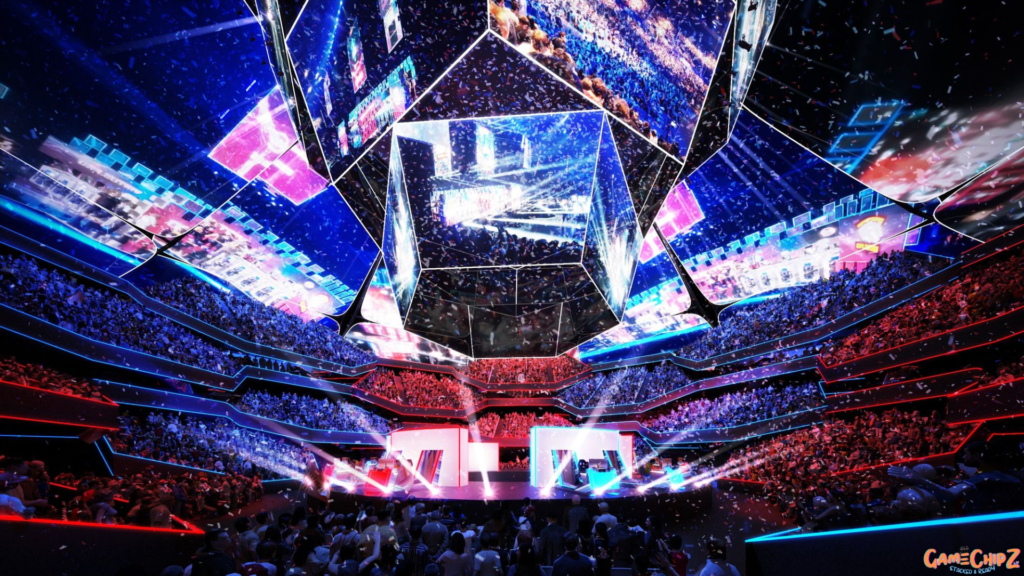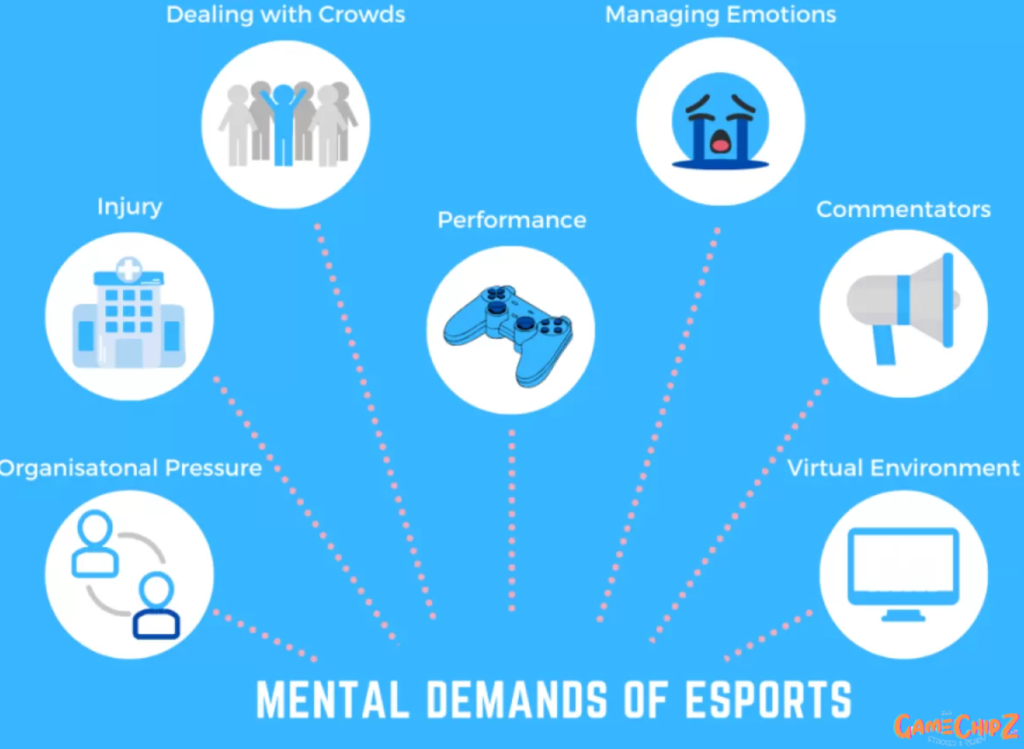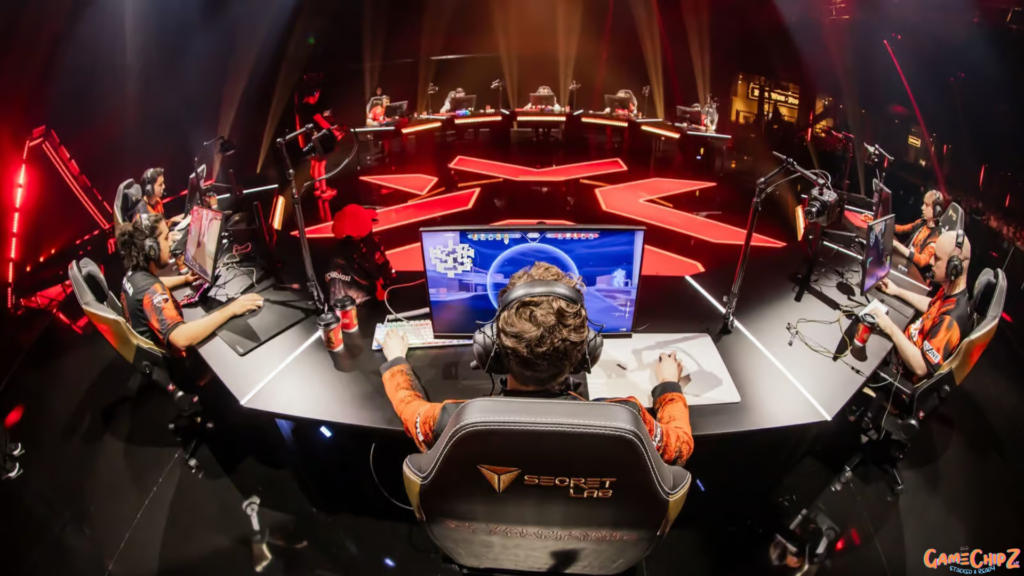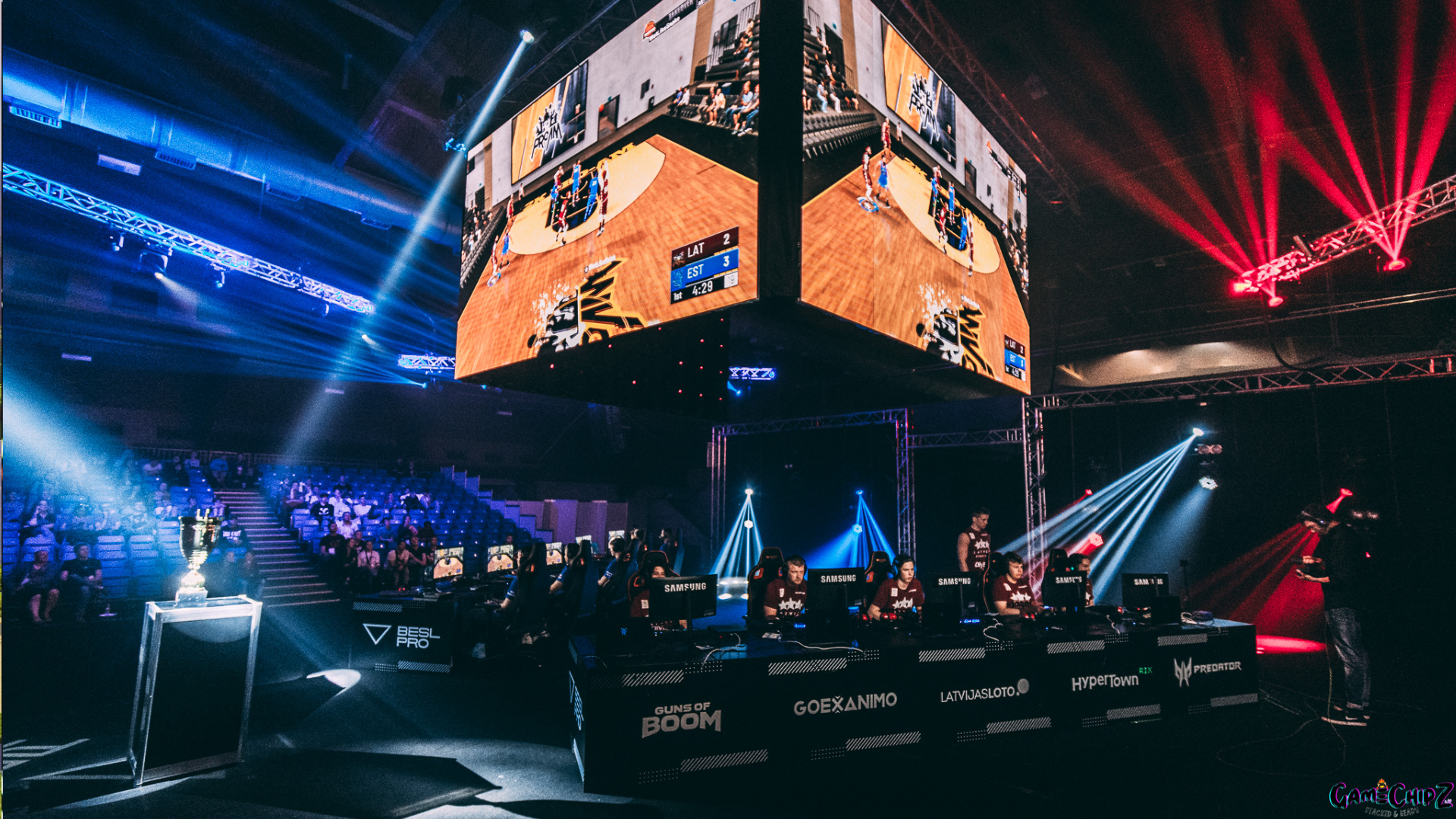Picture this: you’re locked in an intense Valorant match, strategizing with your team, every flick of your wrist a calculated move to take down the enemy. Your heart’s racing, your focus is razor-sharp—doesn’t that sound like the kind of intensity you’d expect from a sport? So, should video games be considered a sport? Absolutely!
For many Gen Z gamers, video games are more than just a pastime—they require skill, practice, and even a bit of sweat, much like traditional sports. And with esports blowing up worldwide, it’s hard to deny the competitive nature and professionalism that goes into gaming. But why should video games be considered a sport? Well, that’s exactly what we’re diving into today.
From the mental gymnastics of outwitting opponents to the physical precision required to perform at peak levels, are video games sport? Spoiler: yes, and we’ll show you why!
What Makes a Sport, a Sport?

Before diving into why video games should be considered a sport, let’s break down what defines a sport in the first place. Traditionally, sports involve physical exertion, skill, competition, and often, teamwork. But when we look closer, not all sports demand extreme physicality—think of chess, which is recognized as a sport despite being more about mental sharpness than raw athleticism.
So, should video games be considered a sport? Competitive gaming ticks many of the same boxes. Just like athletes, gamers train for hours, mastering techniques, refining strategies, and pushing their reaction times to the limit. The level of skill required to play at a professional level rivals that of traditional sports. When you’re in a high-stakes game, where one wrong move could cost the match, the mental and physical challenges of gaming come into sharp focus.
But why should video games be considered a sport when they don’t involve running or jumping? It’s simple: the core elements of competition, skill, and mastery are all there. And with the growing esports industry, it’s clear that gaming has carved out its own space in the sports world.
The Physical and Mental Demands of Competitive Gaming
When people think of sports, they often imagine intense physical activity, but the truth is that sports also require mental agility and strategic thinking. So, should video games be considered a sport if they lack traditional physicality? Let’s break it down.
While gaming might not have you running laps or lifting weights, the physical demands are very real. Gamers need lightning-fast reflexes, precision hand-eye coordination, and endurance to play for long stretches without losing focus. High-level gaming can be incredibly taxing on the body, especially when you consider the toll on hands, wrists, and even posture.
Mentally, gaming is just as challenging—if not more so—than many recognized sports. Players have to make split-second decisions, outthink their opponents, and maintain focus in high-pressure situations. The strategic depth in games like League of Legends or Counter-Strike requires the kind of brainpower that would make any chess grandmaster sweat.

So, are video games sport? When you consider the physical and mental demands involved, it’s hard to argue otherwise. Competitive gaming isn’t just about having fun—it’s a test of skill, endurance, and intelligence.
Strategy: The Mind Game of Competitive Gaming
While sports like football and basketball are known for their physicality, strategy is a major component of any sport. The same applies to competitive gaming. But why should video games be considered a sport in this context? Because the level of strategy involved can rival, and sometimes exceed, that of traditional sports.
In games like Fortnite or DOTA 2, players are constantly adjusting their tactics, reading the game’s flow, and anticipating their opponents’ next moves. This kind of real-time decision-making mirrors the play-calling and strategic planning seen in professional sports like soccer or American football. The ability to execute these strategies with precision under pressure is what separates the amateurs from the pros.
Teamwork: No Player Wins Alone
Much like traditional sports, many competitive games are team-based. Overwatch or Call of Duty matches require players to communicate effectively, coordinate tactics, and support one another to achieve victory. Should video games be considered a sport when teamwork is just as crucial as it is in sports like basketball or soccer? Absolutely. Esports teams train together, study their opponents, and work in sync to dominate the competition.
So, are video games sport when strategy and teamwork are key? With the complexity and depth of tactics involved, it’s clear that competitive gaming demands the same level of coordination and strategic planning that any team sport would.
Why Competitive Gaming Deserves a Spot in the Sports World

Still wondering, are video games sport? Let’s break down a few key reasons why they should be considered alongside traditional athletics:
- Skill Mastery: Just like an athlete practices their swing or jump shot, gamers spend countless hours honing their mechanics, perfecting their aim, and mastering in-game movement. It takes dedication, discipline, and repetition.
- Competitive Nature: At its core, gaming is about competition. Whether it’s climbing the ranked ladder in League of Legends or duking it out in Super Smash Bros., gamers compete for victory, prizes, and prestige.
- Professional Scene: Esports tournaments have become massive events, complete with millions of fans, professional teams, and prize pools rivaling traditional sports. Esports athletes train just as hard, if not harder, than their conventional counterparts.
- Endurance: Pro gamers need physical and mental endurance to perform at their peak for long stretches. Competitive matches can last hours, and staying sharp the whole time takes serious focus.
- Global Popularity: The worldwide reach of competitive gaming is undeniable. With millions of fans, streams, and esports leagues, it’s safe to say gaming has earned its place on the world stage, right next to traditional sports.
Each of these elements shows why video games should be considered a sport. With the immense skill, competition, and dedication involved, gaming has become far more than a pastime—it’s a sport in every sense of the word.
Esports: A Global Phenomenon

Competitive gaming isn’t just a niche hobby anymore—esports have taken the world by storm. Major tournaments like The International for Dota 2 or the League of Legends World Championship draw millions of viewers from across the globe. In fact, these events often rival traditional sports in terms of viewership, with streams attracting numbers that can even surpass major sporting events like the Super Bowl.
Esports athletes are becoming household names, much like professional footballers or basketball players. With huge sponsorship deals, dedicated training regimens, and massive fan followings, esports pros live the life of professional athletes. The global popularity of these tournaments and the legitimacy they bring is another reason why video games should be considered a sport.
The Professional Ecosystem of Gaming
Esports has developed its own thriving professional ecosystem. From team managers and coaches to analysts and streamers, the infrastructure around gaming is becoming more complex and professionalized. Players on esports teams train for hours each day, much like traditional athletes, often competing in rigorous schedules that span multiple months. They also participate in strategic meetings, watch game replays to refine tactics, and engage in scrimmages to sharpen their skills.
This level of organization and professionalism is no different from what you’d see in the NBA, NFL, or Premier League. The existence of this fully developed professional environment, with massive prize pools, corporate sponsorships, and an ever-growing fanbase, shows why video games should be considered a sport. The commitment and skill required to succeed in esports are equal to, if not greater than, what’s needed in traditional sports.
Video Games Be in the Olympics

The inclusion of esports in the Olympics has sparked a global debate about the future of competitive gaming and its place among traditional sports. As esports continues to grow in popularity, with millions of viewers tuning in to watch global tournaments, the idea of bringing competitive gaming to the Olympic stage no longer seems far-fetched. Advocates argue that the skill, strategy, and teamwork required in games like League of Legends or DOTA 2 are just as demanding as those in many Olympic sports. These games require players to train for hours daily, master complex mechanics, and compete at a high level against other skilled opponents, making them worthy of Olympic recognition.
Critics, however, argue that esports lacks the physicality typically associated with Olympic events. Unlike traditional sports such as swimming or gymnastics, competitive gaming doesn’t involve physical exertion to the same degree. However, supporters of esports counter this argument by pointing to existing Olympic events like archery, chess, and shooting, which focus more on precision, strategy, and mental endurance than physical prowess. In these sports, the emphasis is on skill and concentration—qualities that are equally essential in esports, suggesting that gaming is just as valid a sport as any.
The International Olympic Committee (IOC) has already begun to acknowledge the potential of esports, introducing demonstration events like the Intel World Open and esports events during the 2018 Asian Games. As the conversation around the inclusion of esports in the Olympics continues to grow, it raises important questions about the evolution of the games and what defines a sport. With the global appeal of competitive gaming and its rapid rise as a professional industry, it’s only a matter of time before esports makes a strong case for full Olympic inclusion.
Conclusion: The Future of Gaming as a Recognized Sport
As we’ve explored, the question of whether video games should be considered a sport is backed by compelling arguments on both sides. However, when we look at the skills, strategies, teamwork, and global popularity of esports, it’s clear that competitive gaming deserves its place alongside traditional sports. The dedication and discipline required to excel in gaming mirror those of any athlete in the field.
From lightning-fast reflexes to intricate strategies and intense teamwork, the demands of competitive gaming are immense. With esports rapidly gaining traction and becoming a significant part of the global sports landscape, it’s time to recognize the legitimacy of gaming as a sport.
As we move forward, the potential for esports to join the ranks of established sports like football and basketball seems more likely than ever. So the next time someone asks, “Are video games sport?” you can confidently say yes—gaming is not just a pastime; it’s a thrilling, skillful, and competitive arena worthy of recognition. Embrace the future of gaming, and who knows? You might just witness its evolution into a celebrated sport for generations to come.
FAQ
Should video games be considered a sport?
Yes, video games should be considered a sport because they require significant skill, strategy, and teamwork. Competitive gaming involves intense mental and physical demands similar to those found in traditional sports. Just as athletes train rigorously to enhance their performance, gamers dedicate countless hours to perfecting their skills, developing strategies, and competing at various levels. The rise of esports showcases the legitimacy of gaming as a competitive endeavor worthy of recognition alongside traditional sports.
Why should video games be considered a sport?
Video games should be considered a sport because they demand a high level of practice, precision, and endurance, much like traditional sports. Players must develop their reflexes, improve their decision-making abilities, and work collaboratively with teammates to succeed. The competitive nature of gaming, coupled with the need for strategic thinking and mental stamina, parallels the qualities found in recognized sports, making a strong case for its inclusion as a legitimate sport.
Are video games sport?
Absolutely. Competitive gaming qualifies as a sport because it encompasses competition, skill mastery, and a growing professional ecosystem. Esports events have become significant cultural phenomena, attracting large audiences and substantial sponsorship deals. Players engage in intense competitions that require dedication, teamwork, and strategic planning, all hallmarks of traditional sports.
What are some examples of esports that demonstrate the sport-like qualities of gaming?
Games like League of Legends, Counter-Strike: Global Offensive, and DOTA 2 exemplify the sport-like qualities of gaming. These games require players to formulate complex strategies, communicate effectively with teammates, and adapt to opponents’ tactics in real-time. The depth of gameplay and the level of skill necessary to compete at a professional level highlight the competitive nature of esports, paralleling traditional sports like football or basketball.
Are there any esports tournaments recognized globally?
Yes, major esports tournaments such as The International (for DOTA 2) and the League of Legends World Championship are recognized globally. These events attract millions of viewers and offer substantial prize pools, often exceeding millions of dollars. They showcase the best talent in the gaming world and elevate competitive gaming to a level that rivals traditional sports in terms of organization, viewership, and cultural significance.
Why is there a debate about including esports in the Olympics?
The debate regarding the inclusion of esports in the Olympics primarily revolves around the perceived physical demands of gaming compared to traditional sports. Critics argue that esports lack the physical exertion typically associated with athletics. However, proponents point out that many Olympic sports emphasize mental focus and strategy rather than pure physicality, suggesting that competitive gaming deserves similar recognition. As esports continues to grow, discussions around its Olympic inclusion are likely to intensify.
How do esports athletes train compared to traditional athletes?
Esports athletes undergo rigorous training programs similar to those of traditional athletes. They typically practice for several hours each day, focusing on refining their mechanics, improving their strategies, and analyzing gameplay footage to identify areas for improvement. Additionally, esports teams often engage in scrimmages to develop teamwork and communication skills, just as sports teams do. This commitment to training and improvement highlights the professionalism and dedication required to succeed in esports.
What skills are required to excel in competitive gaming?
To excel in competitive gaming, players need a combination of skills, including:
- Hand-eye coordination: Quick and precise movements are crucial for aiming and executing in-game actions.
- Reflexes: The ability to react swiftly to dynamic game situations can make the difference between victory and defeat.
- Strategic thinking: Players must analyze the game environment, anticipate opponents’ moves, and adapt their strategies accordingly.
- Communication: Especially in team-based games, effective communication is essential for coordinating strategies and supporting teammates.
- Mental stamina: Competing for extended periods requires focus and resilience to maintain peak performance under pressure.
Can anyone become a professional gamer?
While anyone can start gaming, becoming a professional gamer requires significant dedication, extensive practice, and a commitment to continuous improvement. The competitive gaming landscape is challenging, and those who succeed often invest countless hours honing their skills. Aspiring professional gamers should focus on mastering their chosen games, participating in local tournaments, and learning from the gaming community. While not everyone will reach professional status, the skills gained can lead to other opportunities within the gaming industry.
How can I get involved in competitive gaming?
To get involved in competitive gaming, consider the following steps:
- Choose your game: Pick a popular competitive game that interests you, such as Valorant, League of Legends, or Fortnite.
- Practice regularly: Dedicate time to practice and improve your skills. Consider joining online communities for tips and support.
- Join local tournaments: Participate in local or online tournaments to gain experience and test your skills against other players.
- Watch professional streams: Learn from professional gamers by watching their streams or videos. Pay attention to their strategies and techniques.
- Engage with the community: Connect with fellow gamers on social media platforms, forums, or gaming events to share experiences and learn from one another.
By following these steps, you can immerse yourself in the competitive gaming scene and begin your journey toward becoming a skilled player.


